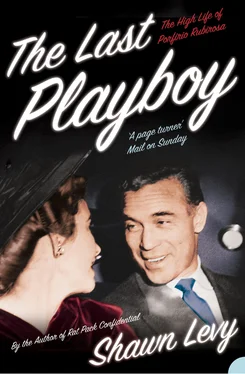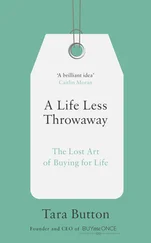But it wasn’t to be. The war that Rubi hadn’t foreseen when he was sitting within a few feet of its architect in a Berlin stadium began in earnest. And although the Dominican Republic was still officially neutral in the boiling European conflict, events in the Old World seemed likely to upset the balance of power in the Caribbean. Trujillo felt he had no choice but to leave Doña Maria and the children in Rubi’s care and sailed home on the Ramfis . By the time he reached Ciudad Trujillo, Rubi had safely sent his family after him.
If Trujillo felt cheated out of his grand tour, Rubi was handsomely rewarded for the part he played in orchestrating it. Back in the dictator’s good graces, he was reinstated at the French and Belgian embassies as a first-class secretary.
It was a truly auspicious time to hold such a position. Trujillo, still stung by the beating his image had taken after the Haitian border massacres, had made a grand show of opening his country to refugees from the Spanish Civil War; it wasn’t a huge influx, but the PR bounce was good. When he became aware of the desire of European Jews to relocate to the Western Hemisphere, he saw an opportunity to ingratiate himself with U.S. interests. Although he reckoned Judaism to be synonymous with communism, he declared that the Dominican Republic would accept one hundred thousand European Jews on its soil and demarcated a territory where they would be allowed to settle: Sosùa, a beachside village on the northern coast; a large parcel of his own land would be given over to the enterprise.
Word that Trujillo was accepting Jewish refugees led to a run on Dominican consulates and embassies in countries not yet controlled by the Nazis. A chancer like Rubi, given access to papers that could liberate anybody he favored, was sitting on a gold mine. He sold visas on a sliding scale, getting as much as $5,000 a head, and never concerned himself with how or even if his customers got out of France, much less all the way to the Dominican Republic. As it happened, Trujillo’s offer was chiefly rhetorical: Fewer than one thousand European Jews made their way to Sosùa, and the projected Caribbean Jerusalem eventually became a resort with a little Jewish history sprinkled in. *But from the vantage of Paris, it didn’t matter: Rubi did a thriving business until the Nazis took the French capital. “He got rich selling visas to Jews,” shrugged his brother Cesar. “Didn’t everybody?”
The business wasn’t always pernicious. A Spanish journalist who feared Fascist reprisals against him managed to get a visa out of Rubi for free but had to pay him $5,000 for transport from Paris to Barcelona to Puerto Plata, where a train would take him to Ciudad Trujillo. “When I got to Puerto Plata I learned that there had never been a train from there to Ciudad Trujillo,” he recalled with laughter.
And sometimes the results were profound. Take the case of Fernando Gerassi, a Turkish-born Spaniard who came to Paris in the 1920s and, as an abstract painter in the mode of Kandinsky and Klee, chummed around with such Left Bank icons as Picasso, Sartre, and Alexander Calder. By the late 1930s, Gerassi had fought for the losing side in the Spanish Civil War and found himself living back in Paris under the uncomfortable threat of German ascendancy. And then he had a chance meeting with somebody who could help. According to Gerassi’s son, historian John Gerassi, the painter and Rubi met playing poker and hit it off and Rubi was able to help his new friend by hiring him as a secretary at the Dominican embassy. Then, when the Nazi threat grew more intense, he gave Gerassi a more prestigious title that resulted in safe passage out of Europe not only for him and his family but, as it turned out, for many others.
“My family was leaving Paris because the Germans were coming,” the younger Gerassi recalled. “Rubirosa gave Fernando the position of ambassador from the Dominican Republic, gave him the official stamp. Fernando, in turn, gave eight thousand passports to Spanish Republicans, Jews, whoever he could help, before the Germans caught up. My parents came to America as Dominican diplomats.” Not only did Fernando Gerassi save the lives of his family and the thousands for whom he obtained visas and passports throughout 1940 and 1941, he was, when the United States entered the war, enlisted in the OSS as an operative in Latin America and then Spain. In the latter operation, Gerassi engaged in disruptions of German military traffic, abetting the Allied landing in Africa and receiving commendation and a medal from the U.S. government. “Without your actions in Spain in 1942,” OSS founder William Donovan wrote to Gerassi, “the deployment of Allied troops in North Africa could not have taken place.” Thousands saved, Nazis frustrated, a painter become a humanitarian hero, and all because Rubi found lucrative use in the black market for his Dominican diplomatic privileges. It’s a Wonderful Life with an ironic coating of avarice.
It wasn’t long, though, before larger events scuttled Rubi’s get-rich-live-rich scheme. Starting in June 1940 when the Nazis finally did enter Paris, the status and even the location of the Dominican embassy shifted with disconcerting regularity. The Dominican Republic was still technically neutral in the European war, and it maintained diplomatic relations with the Nazis’ puppet government in Vichy, a liaison that was difficult to maintain as the Germans continually forced the Dominicans to relocate their base of operations: Twice before midsummer the embassy moved, first to Tours and then to Bordeaux, where Rubi was ordered to present himself. “A lady friend accompanied me,” he remembered in his memoirs, failing to mention that it was his partner in greed, lust, and social climbing, La Môme Moineau. “Officially, the Dominican legation was put up in a castle near St. Emilion. I presented myself there. It was filled with refugees—some crying old ladies, children with dirty noses, caged birds, kittens in baskets, and old men who had saved France in Les Esparges or Verdun.” This wasn’t exactly the duty he’d signed up for, and he immediately took advantage of the vacuum of authority—communication with Ciudad Trujillo had slowed to almost nil—and changed his and his companion’s situation: “I stayed in a pension for a few days and then returned to Biarritz.”
Eventually, a Dominican embassy was established in Vichy. Even though it enjoyed a prime location—it was situated in the Hôtel des Ambassadeurs directly across from the Grand Casino—the new embassy wasn’t to Rubi’s liking. “In Paris,” he explained, “life had recommenced. I was neutral. I returned to Paris and then went to Vichy. Paris—Vichy, Vichy—Paris: This was my itinerary during the fall of 1940.”
And so it was that when the French diplomat Count André Chanu de Limur invited him to a cocktail party in Paris that autumn he was available to attend. Truth be told, he might have made the effort to be there no matter where he’d been when he got the invitation: The guest of honor was just the sort of woman he would want to meet: the highest-paid movie star in France, “the most beautiful woman in the world,” as she was billed, twenty-three-year-old Danielle Darrieux.
At fourteen, there was a knowing depth to her eyes, and their audacity drew you to her soft, gamin face. By seventeen, she could play ten years older than she was and had learned how to steal scenes with such mature tricks as slowly unfurling her eyelids when asked a question. She was a bona fide natural, able to channel emotions—joy, sorrow, worry, hope—in such a way that the audience felt them instinctively through her. But she was at her best as a comedienne, with a delicious ability to squinch her features into a smile so that her eyes seemed two merry commas on either side of the aquiline exclamation mark of her nose.
Читать дальше












